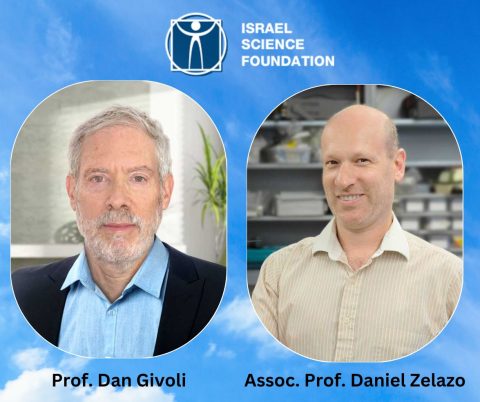
We are thrilled to announce that two faculty members, Prof. Dan Givoli and Assoc. Prof. Daniel Zelazo has been awarded Israel Science Foundation (ISF) grants.
Prof. Dan Givoli for his research:
Mixed-Dimensional Modeling for Time-Dependent Bending Problems
The goal of the proposed research is to devise and apply new computational Mixed-Dimensional Modeling (MDM) methods for various time-dependent (hyperbolic) elastic wave problems involving bending. In MDM, a large region in the original domain of the problem is replaced by a domain of a lower spatial dimension. For example, a long slender elastic region in a three-dimensional (3D) structure, that is expected to behave approximately in a one-dimensional (1D) way, is replaced by a genuinely 1D member.
Bending problems pose a special challenge for MDM, for the following reasons: (a) bending wave propagation patterns are more complex that those characterizing tension-compression dominated problems; (b) dispersion properties of 2D and 3D elastic solids are considerably different than those of bending elements like beams, plates and shells; (c) in standard finite element methodology, the type of degrees of freedom associated with 2D or 3D elastic solids, i.e., displacements, does not match that of bending element degrees of freedom, which include rotations. Thus, coupling the two sub-models requires novel techniques.
Assoc. Prof. Daniel Zelazo for his research:
Formation Control Over Directed Graphs
Many applications for cooperative multi-agent networks require the agents to arrange themselves into some spatial pattern. This can include alignment of orientations and velocities for flocking behaviors, or specific formations like spacecraft constellations for sensing or vehicle platoons for autonomous driving. The formation control problem seeks to design distributed control strategies for each agent that ensure the entire ensemble can arrange into the desired formation.
Despite recent progress in the study of multi-agent coordination and formation control problems, there remains a large gap between the theoretical advances and their real-world implementation. Indeed, many works on multi-agent systems assume undirected communication and sensing networks. In reality, sensing employed in, for example, robotic systems are inherently one way (directed). In other words, if agent i can sense agent j, it is not necessarily true that agent j can sense agent i. The study of formation control over directed remains a challenging and open problem.
This then motivates the goal of this research project where we aim to study formation control strategies for directed constraint. We will also study the combinatorial and algebraic structures related to directed constraint systems, which are needed to define these formations correctly, and use a multi-robot test-bed to validate our results.








